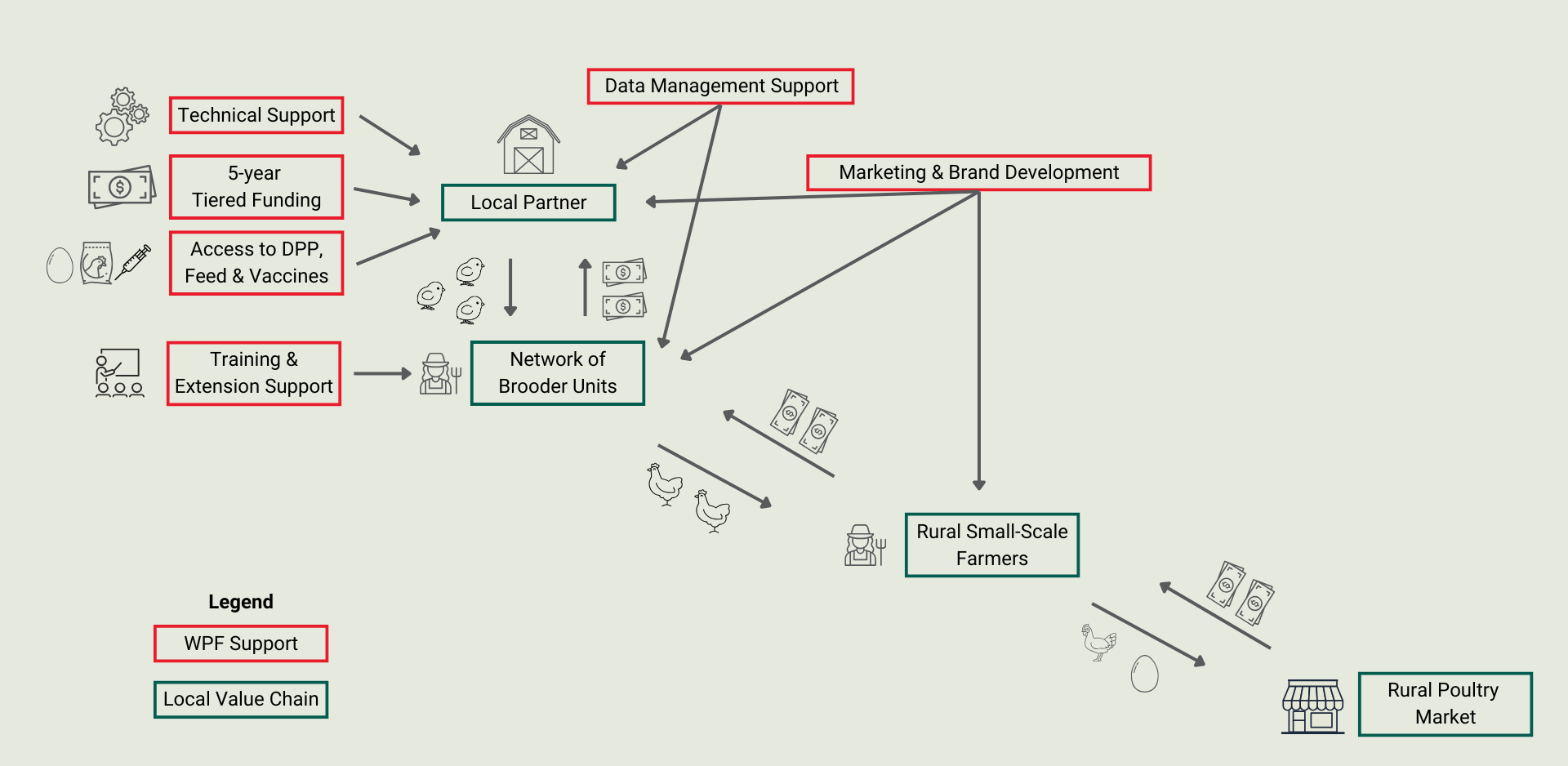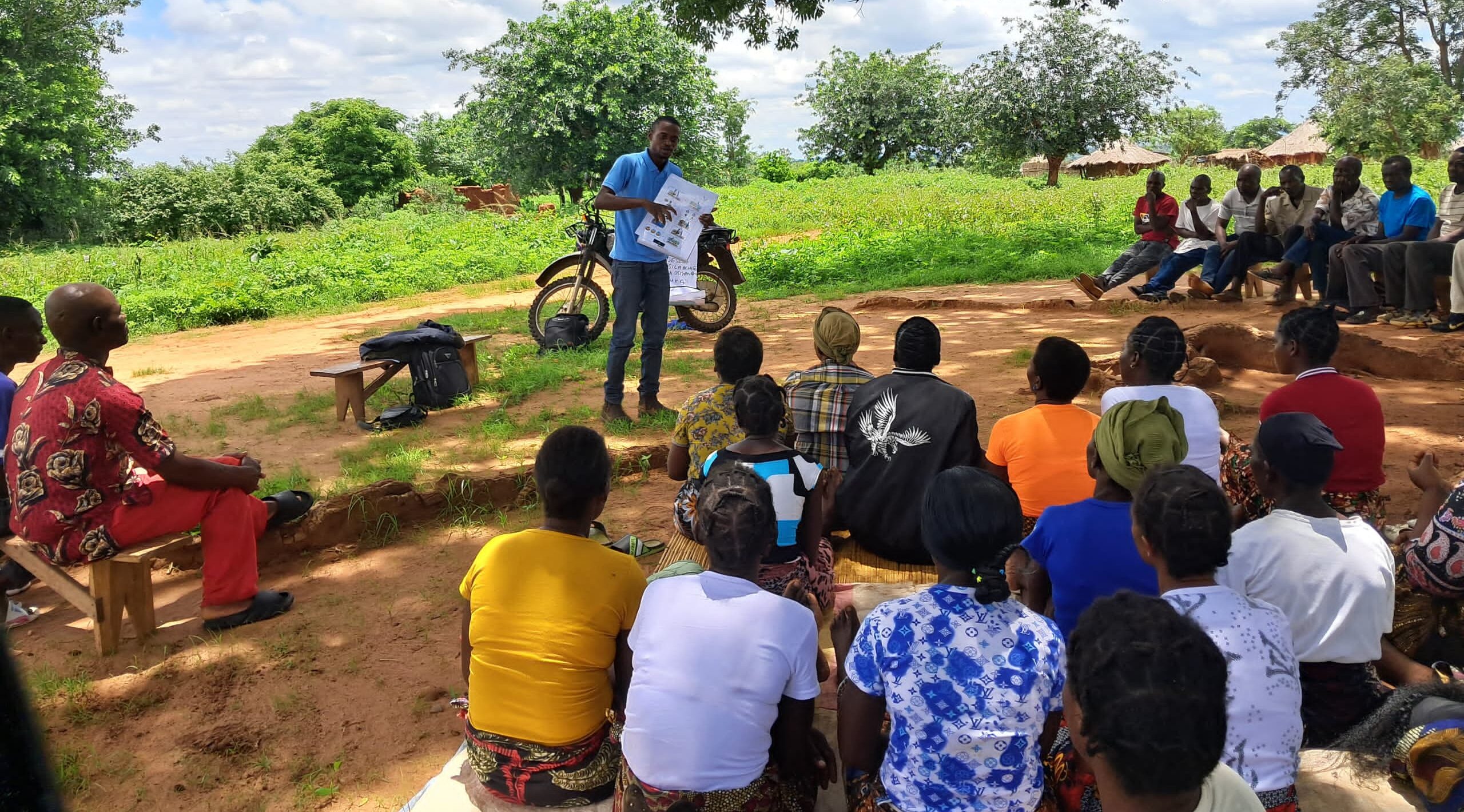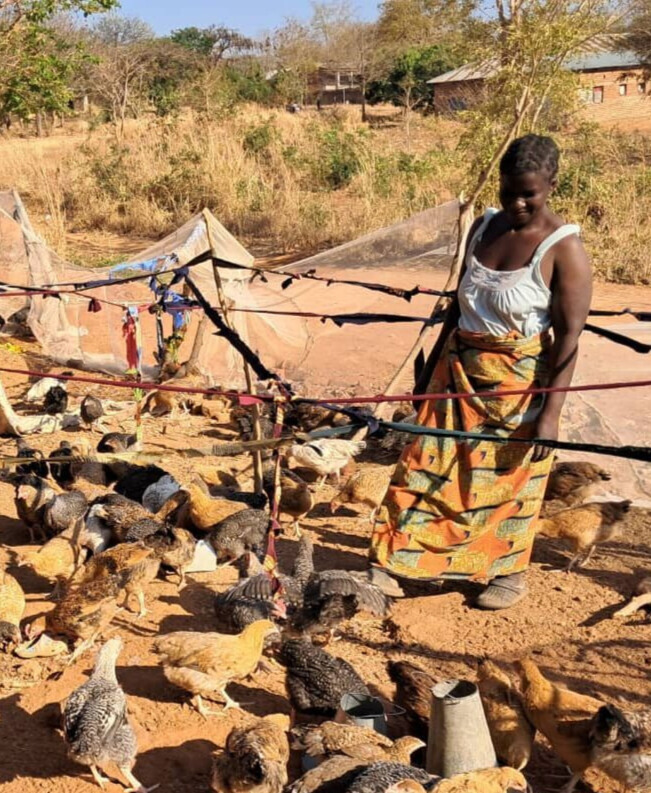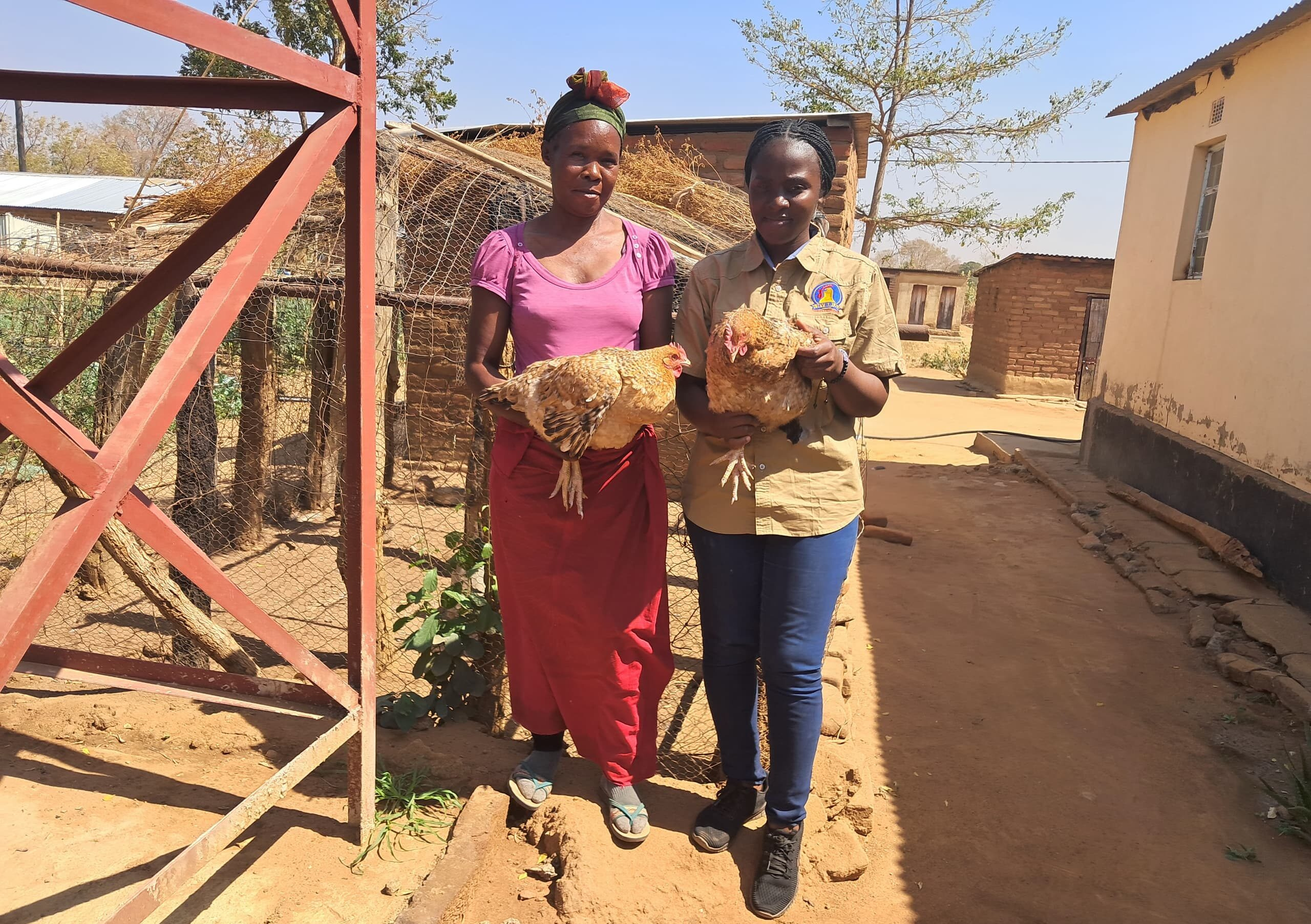By: Taylor Yess and Leelee Puthumile Ngwenya, Marketing Manager for Hybrid Poultry Farm
The African Poultry Multiplication Initiative (APMI) is an ambitious program designed to address challenges in the poultry value chain in target countries. Through improved access to high-quality poultry inputs, sustainable practices, and capacity-building efforts, APMI empowers rural farmers, agribusinesses, and entire communities.
At the heart of the program’s success is the vital role played by Field Service Representatives (FSRs). These dedicated professionals not only connect private-sector partners with rural farmers but also serve as the driving force behind the marketing efforts that introduce dual-purpose poultry (DPP) birds to new regions. Their marketing expertise is instrumental in fostering awareness, building trust, and ensuring the successful adoption of these birds, which are often new to the local communities.

In this blog, we’ll explore how FSRs approach marketing in culturally relevant ways, use data to tailor their strategies, and overcome challenges to ensure the APMI program’s success. Insights from Leelee Puthumile Ngwenya, Marketing Manager for Hybrid Poultry Farm in Zambia, offer a closer look at how FSRs are reshaping the poultry landscape in rural areas.
FSRs as Marketers: Bridging the Gap
FSRs serve as on-the-ground ambassadors for the APMI program, using hyper-localized marketing techniques to connect rural farmers with DPP birds. Their work is deeply rooted in relationship-building, cultural understanding, and targeted communication, which are essential for introducing these birds to communities where they are often a completely new concept.
How FSRs Market to Farmers
FSRs adopt a hands-on, personal approach to create awareness and generate demand for DPP birds. Their marketing efforts include:
- Community Outreach Events: FSRs organize regular events to demonstrate the benefits of DPP birds, giving farmers first hand exposure to the product.
- Engaging with Local Leaders: By meeting with traditional leadership in their target regions, FSRs establish credibility and build trust with the community.
- Face-to-Face Interactions: They spend time directly addressing farmers’ concerns, answering questions, and highlighting the economic benefits of adopting DPP birds.
Ngwenya underscores the importance of this personalized approach:
“The value [of FSRs] is really in the relationship-building that they do with customers because this is a customer-centric business, and those face-to-face relationships are crucial.”

The Data-Driven Edge
What sets APMI’s marketing efforts apart is its reliance on data to inform strategies. Using the APMI monitoring platform, CommCare, FSRs and their private-sector partners like Hybrid Poultry Farm collect valuable information on the demographics, preferences, and farming practices in different regions. This data enables them to fine-tune their marketing campaigns and connect with their target audiences more effectively.
Ngwenya explains:
“In Nyimba, we noticed a strong presence of women farmers, whereas Rufunsa has more men engaging in poultry farming, and Petauke is a mix. This insight allowed us to tailor our marketing to reflect the real people in these communities, making it relatable and impactful. Even with our billboards, we use these insights to guide the story we want to tell. In one region, we might feature a younger woman; in another, a teenager holding a basket of eggs; and elsewhere, an older man. CommCare has been instrumental in helping us identify these nuances and improve the effectiveness of our marketing.”

By leveraging data, FSRs ensure that their campaigns resonate with the cultural and economic realities of the communities they serve. This approach builds trust, fosters engagement, and ultimately drives the adoption of DPP birds.
Supporting Brooder Units (BUs): Marketing and Beyond
A key outcome of FSRs’ marketing efforts is the establishment and support of Brooder Units (BUs)—a crucial link in the APMI poultry value chain. These BUs are operated by experienced farmers who rear day-old chicks (DPP birds) until they are about four weeks old, at which point they are sold to small-scale farmers.
Ngwenya explains:
“A BU farmer is the person who raises DPP from day one until about week four before selling to small-scale producers. At Hybrid Poultry Farm we have certain standards to ensure the success of the chicks from day one.”
FSRs play a pivotal role in identifying and recruiting quality BU operators. Through localized marketing efforts and data-driven insights, they pinpoint areas with high demand and work closely with farmers to ensure they have the resources and training needed to succeed.
FSRs also provide ongoing technical support to BU operators, ensuring they maintain high biosecurity standards, keep detailed records, and deliver high-quality chicks to local farmers. Sustained, quality outputs from BUs are key to continued growth and profitability of the DPP market in rural areas.
Overcoming Challenges in Marketing
The work of FSRs is not without its challenges. Farmers are often skeptical of new products like DPP birds, and reaching remote areas with limited access to quality inputs can be difficult. However, FSRs’ expertise and commitment have helped APMI overcome these hurdles.
Building Trust with Farmers
To address skepticism, FSRs prioritize showcasing tangible results. By sharing success stories and organizing demonstration events, they instill confidence in farmers and encourage them to try DPP birds.
Expanding Reach in Remote Areas
FSRs use their relationships with local leaders and BUs to set up convenient distribution points, ensuring that even farmers in hard-to-reach locations have access to high-quality chicks. Their continued engagement with farmers fosters trust and provides long-term support, ensuring sustainable outcomes.
How Are DPP Birds Performing in Rollout Areas?
The rollout of DPP birds in APMI’s focus areas has been met with overwhelmingly positive feedback. Farmers report excellent growth rates and high survival rates, which has driven enthusiasm for the program. Success stories like that of Mr. Friday Banda, a seasoned broiler farmer who has embraced DPP birds with outstanding results, highlight the transformative potential of this initiative.
Ngwenya shares:
“To see [the farmers’] level of dedication and their passion for it because they know they’re going to get something out of it—it’s inspiring. Farmers are putting money back into the program after seeing great success with their first cycles.”

The Transformative Impact of FSRs
The success of the APMI program hinges on the dedication and expertise of FSRs. Their role in marketing, education, and technical support ensures the program’s sustainability and scalability, transforming the poultry value chain in rural areas.
Ngwenya shares:
“FSRs are not just there to sell a product; they are there to walk the journey with the BUs and make sure they have what they need to be successful as poultry entrepreneurs.”
As APMI continues to expand, the lessons learned from FSRs will serve as a foundation for future growth. By investing in people and partnerships, the program is building a resilient and inclusive poultry industry that benefits farmers, agribusinesses, and entire communities.
Through their tireless marketing efforts, FSRs are driving the adoption of DPP birds, supporting BUs, and empowering rural farmers to achieve sustainable growth. They are the unsung heroes of the APMI program, ensuring its success one farmer at a time.
The APMI Program is being implemented in The Gambia and Sierra Leone with generous funding from the Qatar Fund for Development (QFFD).
CATEGORY
LOCATION